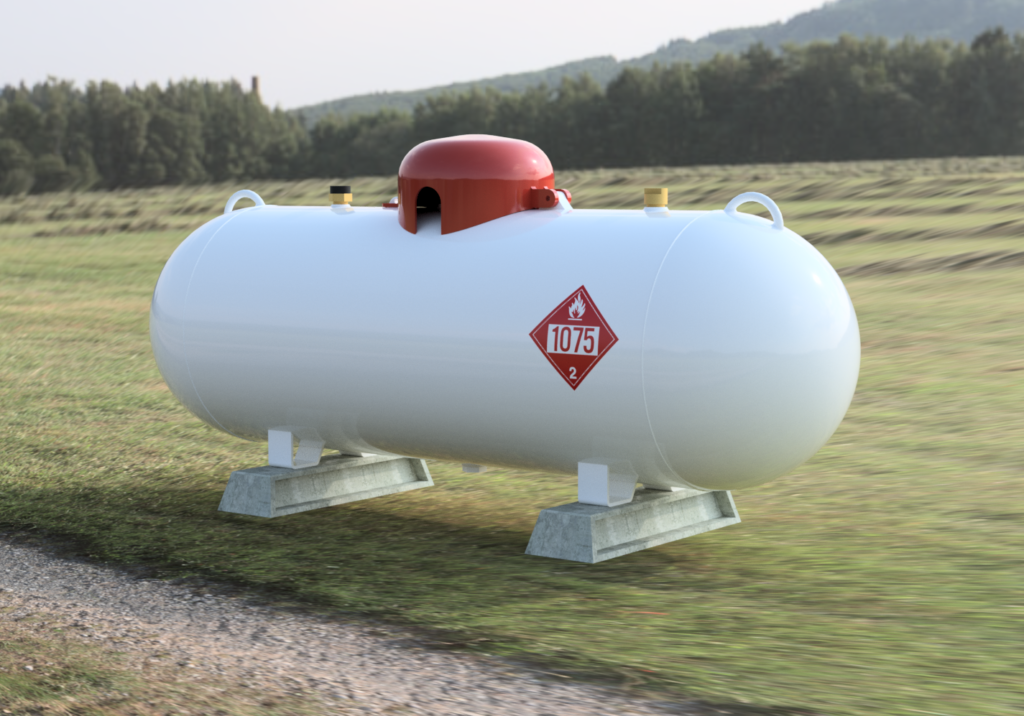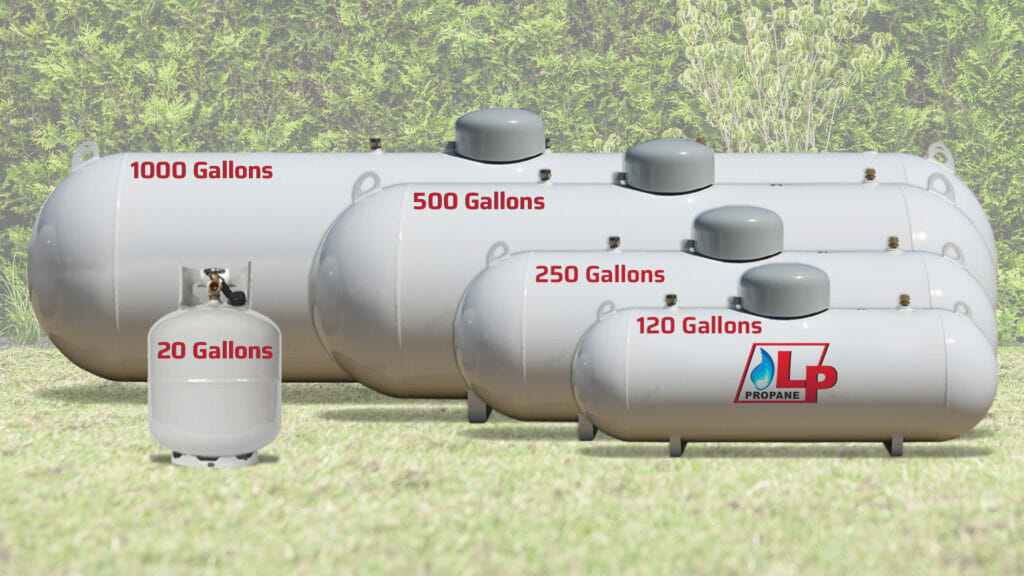Moving into a house that has propane heat? Perhaps you’re thinking of switching to propane suppliers this heating oil season. If you are, then you’re likely wondering if renting or owning a propane tank is better. In this article, we’ll cover the pros and cons of each. But if you’re considering switching to propane, please read our article on Heating Oil vs Propane, before you jump to any conclusions.
Does it Make a Difference to Rent or Own a Propane Tank?
Like heating oil, propane is very different from other utilities. Most forms of modern heating today don’t require delivery. However, heating oil and propane both require a delivery truck to come out and deliver, while with natural gas and electric heating, that’s not necessary. Additionally, heating oil and propane will both need to be stored in a tank upon delivery. The good news is, that propane tanks can be stored both above and underground.
While with heating oil tanks, the homeowner owns the tank itself. However, with propane, that isn’t always the case. If you own your propane tank as the homeowner, then fantastic! You have the freedom to order whenever and wherever you want! But, if your provider company owns it, then you’re required to only buy from them. This also makes buying a propane tank a little bit more difficult. Due to that, it is important to know what the pros and cons of owning or renting these tanks are.

What are the Pros and Cons of Owning a Propane Tank?
The Pros of Owning a Propane Tank
- Save Money in the Long Run: Buying a propane tank will give you the ability to shop around and get various prices from other dealers. You will be able to ensure that you get the best prices available to you.
- No Minimum Consumption Amounts: A majority of propane companies will often have a minimum consumption amount for you to be a customer. This means that you have to be burning a certain amount of propane to be one of their customers. Usually, if you don’t meet these requirements, they will charge you greater prices when you rent your tank.
- Can be hidden underground: If you are the owner of your propane tank, you can bury it underground. This will keep it out of sight and unlike buried heating oil tanks, it will not pose a threat to the environment!
The Cons of Owning a Propane Tank
- Higher Cost Upfront: When you are buying a propane tank, you are buying it outright. Due to this, you will often see an upfront cost. You will likely end up paying around $1,000 or so to be able to purchase the propane tank when you move into your new home.
- Tank Maintenance Falls on You: When you own equipment of any kind, it is up to you to take care of it. Propane tanks are no different. You will likely have to hire a propane tank service to help properly maintain it.
What are the Pros and Cons of Renting a Propane Tank?
The Pros of Renting a Propane Tank
No Upfront Costs: Unlike owning the tank, you won’t have to pay any fees upfront for it. Your dealer will usually come out and install it for you, free of charge.
No Concerns when it comes to Maintenance: If you are renting, then it is up to your dealer to repair or replace your tank if needed. As well as any other servicing that might be necessary.
The Cons of Renting a Propane Tank
Tends to be More Expensive Overtime: Renting tanks tend to be more expensive over time. This is because you can’t shop around to get lower prices, and the provider can charge you whatever they’d like. It is often illegal in most states for a propane provider to fill a tank that belongs to another provider. Even if it isn’t illegal in your state, as a courtesy most providers won’t deliver to another provider’s tank.
Minimum Annual Usage: To be able to avoid the propane provider’s rental fee or high prices, you will need to meet certain annual usage requirements. This incentivizes you to use more propane so that you can get these “benefits”. Although, I am using that term loosely.
No Control Over Pricing: If another provider is charging less than what your dealer is charging, you can’t simply change providers. Instead, you’ll have to wait until your contract expires before you can switch. You will then get a new tank and provider.

Which Should You Do?
When buying or renting a propane tank, there are several questions that you should be asking when you’re making your decision. We’ve listed the important ones below:
- How Long Will You Be Staying in the Home? If you are planning on living in this home for five years or more, then it would make sense to buy a propane tank outright to save on costs. But if you’re only going to be staying at this home for a few years, then renting one might be a better idea.
- How Much Propane do you Plan on Using? If you only plan on using propane for cooking and hot water, it probably isn’t worth spending the money on a propane tank. If you are using it for those and the added benefit of heating your home, then you should buy a propane tank.
- How Many Propane Suppliers are in Your Area? If you have a lot of suppliers in your area, then owning a propane tank might be beneficial for you. Doing so will allow you to shop around each time you need propane, allowing you to get the best possible price. If you don’t have many heating oil dealers in your area, then renting a tank is likely the better option.
In conclusion, the decision for you to rent or buy is completely up to you. Although, your situation will often influence your final decision. If your home has an underground propane tank preinstalled, then you have the upper hand. However, regardless of that, the decision is up to you to make based on your current living situation.
Happy Heating,
Hunter



